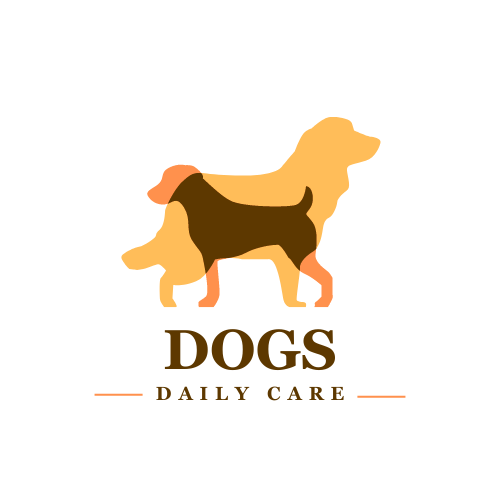French Bulldog Feeding Chart by Weight Age – An Ultimate Guide
French Bulldogs, with their distinct bat-like ears and charming expressions, are more than just pets; they’re family members deserving of the best care. A crucial aspect of this care is their diet, which significantly impacts their overall health and happiness. However, feeding a French Bulldog isn’t a one-size-fits-all scenario. It requires understanding their unique needs and how these change with age and weight. This is where a tailored feeding chart comes into play, ensuring your furry friend gets the right nutrition at every stage of their life.
Navigating through the plethora of dog food options can be overwhelming for any pet owner. That’s why we’ve created a comprehensive feeding chart specifically for your French Bulldog, considering their weight and age. This guide will help you understand not just what to feed your beloved pet, but also how much and how often, setting them up for a healthy, happy life.
Understanding French Bulldog Nutritional Needs
French Bulldogs are not just adorable; their nutritional needs are quite specific too. Unlike larger breeds, Frenchies have a different metabolic rate and dietary requirements. They need a balanced mix of proteins, fats, and carbohydrates, but it’s crucial to get the balance just right. Proteins support muscle growth and repair, fats provide energy, and carbohydrates offer fiber for digestion. The key is to provide these in proportions that suit their small, yet robust, physique.
It’s also important to consider the quality of the ingredients. High-quality, easily digestible proteins are vital for your Frenchie’s health. Look for foods that list real meat as the first ingredient. Fats should be healthy and derived from good sources like fish oils, providing essential fatty acids for a shiny coat and healthy skin. Carbohydrates should come from whole grains, vegetables, and fruits to ensure they are getting enough fiber and nutrients without unnecessary fillers.
Factors Influencing French Bulldog Feeding
Feeding a French Bulldog isn’t just about what you feed, but also how factors like age, weight, and activity level play a role. Let’s break these down:
Age Matters
Frenchies go through different life stages, and each requires a unique diet. Puppies, bustling with energy, need more calories and nutrients to support their growth. Adult French Bulldogs, however, require a balanced diet to maintain their health. As they become seniors, their metabolism slows down, necessitating a diet lower in calories but still rich in nutrients to support their aging bodies.
Weight Watch
Keeping an eye on your Frenchie’s weight is crucial. These adorable dogs can quickly gain weight if overfed, leading to health issues. Knowing your dog’s ideal weight range helps tailor their diet correctly, preventing obesity while ensuring they’re well-nourished.
Activity Influences Appetite
The more active your French Bulldog is, the more energy they’ll need from their diet. A couch-potato Frenchie won’t need as many calories as a more energetic one. Adjusting their food intake based on their daily activity level helps keep them in top shape.
Feeding Chart by Age and Weight
This feeding chart is your go-to guide for determining how much to feed your French Bulldog based on their age and weight. Remember, these are general guidelines. Always consider your Frenchie’s specific health needs and consult your vet.
Types of Food for French Bulldogs
When it comes to feeding your French Bulldog, the type of food you choose is as important as how much you feed them. Let’s explore the options:
Dry Kibble
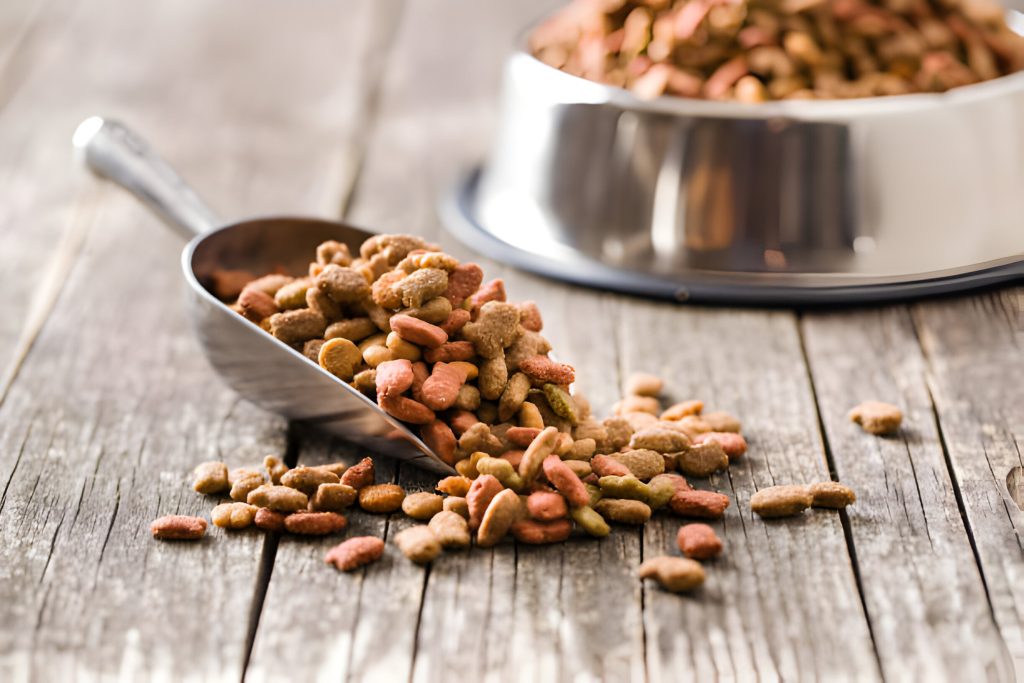
It’s a popular choice for many reasons. Good quality kibble is convenient, helps keep teeth clean, and is often formulated to provide a balanced diet. Look for kibble that’s specifically designed for small breeds like Frenchies, as it will have the right nutrient balance and kibble size for their smaller mouths.
Wet Food
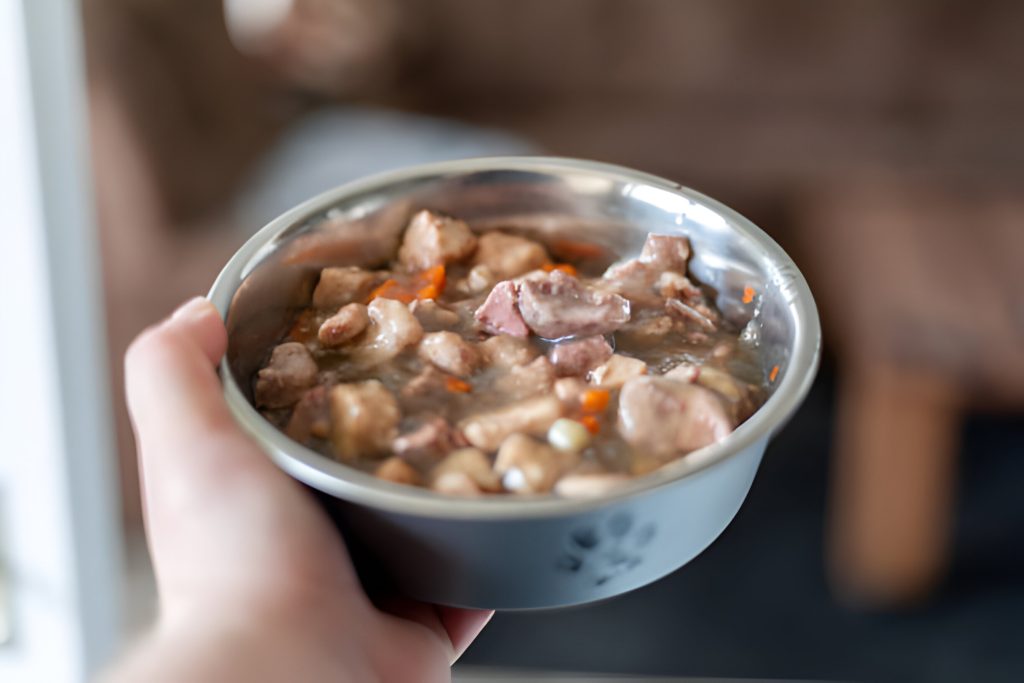
Wet food is great for French Bulldogs who may be picky eaters or need extra hydration. It’s also softer, which can be beneficial for puppies or senior dogs with dental issues. However, it’s important to check that it’s complete and balanced, providing all the necessary nutrients.
Raw Diet
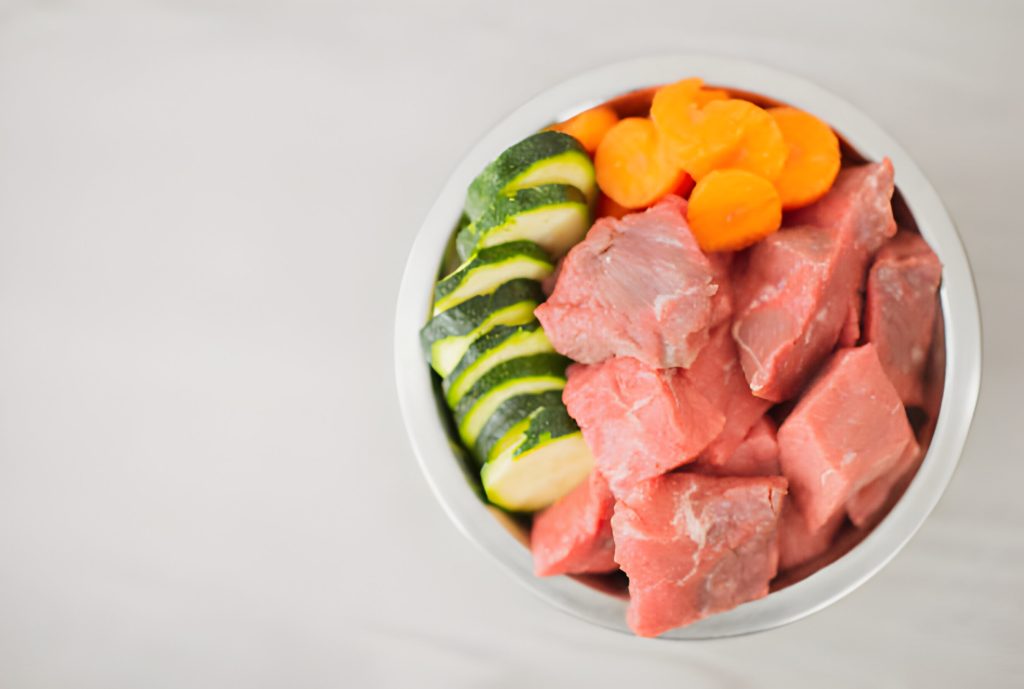
A raw diet, often consisting of raw meat, bones, fruits, and vegetables, is gaining popularity among dog owners. It’s believed to be more natural and closer to what dogs would eat in the wild. However, this diet requires careful planning to ensure it’s nutritionally balanced and safe, as raw foods can carry pathogens.
Each type of food has its pros and cons, and what works best can depend on your French Bulldog’s age, health, and personal preference. It’s always recommended to consult with a vet before making significant changes to your dog’s diet.
Monitoring Your French Bulldog’s Diet
Keeping a close eye on your French Bulldog’s diet is key to their health and wellbeing. Here’s how to do it effectively:
Track Their Weight
Regular weigh-ins are crucial. French Bulldogs are prone to obesity, which can lead to health problems. Keep a chart or log of their weight to notice any significant changes. If you see a steady increase or decrease, it may be time to adjust their diet.
Observe Their Eating Habits
Pay attention to how your Frenchie eats. Are they gobbling food too quickly or showing disinterest? Fast eating can lead to digestion issues, while a lack of appetite might signal health concerns. Both are reasons to consult your vet.
Check Their Body Condition
Besides the scale, assess their body condition. You should be able to feel (but not see) their ribs without much fat covering. They should have a visible waist when viewed from above. This body condition check helps ensure they are not under or overweight.
Remember, each French Bulldog is unique. What works for one may not work for another. Keeping an eye on their diet, weight, and overall health is the best way to ensure they live a long, happy life.
Consulting with a Veterinarian
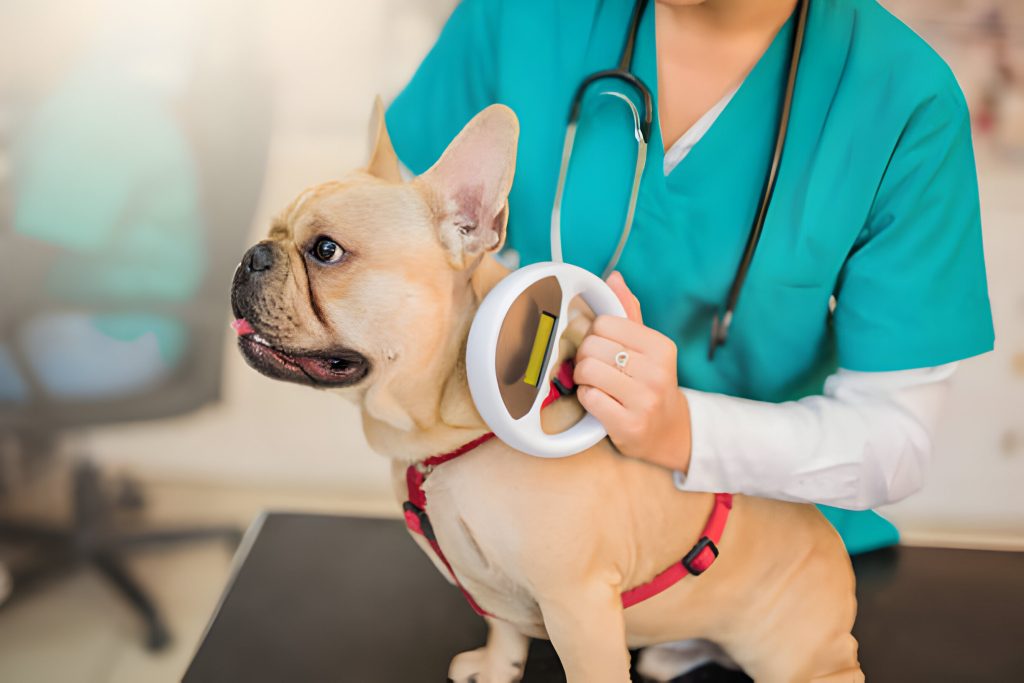
Regular check-ups with a veterinarian are a must for your French Bulldog’s dietary health. Let’s delve into why this is so important:
Tailored Advice
Every French Bulldog is unique. Vets can provide personalized dietary recommendations based on your dog’s specific health, age, and lifestyle. They can help you navigate through the complex world of dog nutrition and choose the best diet for your Frenchie.
Health Monitoring
Vets play a crucial role in monitoring your dog’s health. They can spot signs of nutritional deficiencies or diet-related health issues early on. This early detection is key to managing any problems effectively and keeping your French Bulldog healthy.
Diet Adjustments
As your French Bulldog grows or their health changes, their dietary needs may shift. A vet can guide you through these changes, whether it’s adjusting portion sizes, switching food types, or adding supplements.
Remember, your veterinarian is your partner in your French Bulldog’s health journey. Regular visits and open communication with them ensure that your furry friend gets the best possible care.
Frequently Asked Questions (FAQs)
1. How often should I feed my French Bulldog?
Puppies typically require three to four meals a day to support their rapid growth. For adult French Bulldogs, two meals a day is ideal. This routine helps in maintaining a stable energy level and prevents overeating. However, the exact frequency can vary based on your dog’s health and activity level, so it’s best to consult with your vet.
2. Can French Bulldogs eat human foods?
While some human foods are safe for French Bulldogs in moderation, others can be harmful. Safe options include cooked lean meats, some fruits like apples and bananas, and vegetables like carrots and green beans. Avoid foods like chocolate, grapes, onions, and anything with xylitol, as these can be toxic to dogs.
3. Do French Bulldogs need special food for their sensitive stomachs?
Many French Bulldogs have sensitive stomachs, so it’s important to choose a diet that is easily digestible and low in irritants. Foods with limited ingredients, hypoallergenic formulas, or those specifically designed for sensitive stomachs can be beneficial. Always introduce new foods gradually and monitor for any adverse reactions.
4. How can I tell if my French Bulldog is overweight?
Check for visibility of the waist and feel their ribs. In a healthy weight Frenchie, you should feel the ribs without a thick layer of fat and see a noticeable waist when viewed from above. If your dog appears round or oval-shaped without a visible waist, they might be overweight. Regular vet check-ups can help keep track of their weight.
5. What supplements should I consider for my French Bulldog?
Supplements can be beneficial, especially for joint health, skin, and coat quality. Glucosamine and chondroitin are popular for joint support, while omega-3 fatty acids can help with skin and coat health. However, it’s essential to consult your veterinarian before adding any supplements to your dog’s diet to ensure they’re necessary and safe.
Conclusion
In summary, understanding and managing your French Bulldog’s dietary needs is a key aspect of their overall health and happiness. By adhering to a feeding chart tailored to their age and weight, choosing the right type of food, and monitoring their diet, you can ensure your Frenchie leads a healthy and fulfilled life. Remember, each dog is unique, and what works for one may not work for another. Regular vet check-ups, staying informed, and being attentive to your pet’s individual needs are all vital parts of responsible French Bulldog ownership.
We hope this guide has been a helpful resource in navigating the dietary requirements of your French Bulldog. Feeding your furry friend is more than just a daily task; it’s an integral part of the bond you share. By providing the best nutrition, you’re not just feeding them; you’re nurturing their well-being and enriching the joyful journey you embark on together. Stay curious, keep learning, and enjoy every moment with your adorable French Bulldog.
